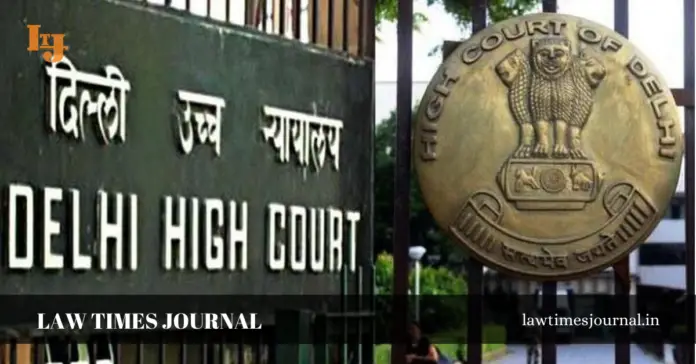
The Petitioner is in Delhi Tihar Jail and wanted to be transferred to Central jail, Srinagar. The Petitioner is in Jail for serious offences of murder with other offences under IPC, contraventions of Arms Act, 1959 and Explosives Substances Act, 1908. Since the case involves high security issues also, the Hon’ble Court held that wish of the petitioner is not the only criteria to transfer the prisoner and Security concerns of the State must also to be taken into consideration and thus the transfer was denied.
A Single Judge Bench of Justice Vibhu Bakhru of Delhi High Court that the wish of a prisoner is not the only factor to be considered while transferring him to another prison on humanitarian grounds and the same was subject to security concerns of the State.
Prior Facts:
The Petitioner is in Tihar for the commission of offences under Sections 302/307/323/120B/124A of the IPC; Sections 3/4/5 of the Explosive Substances Act, 1908; Section 25 of the Arms Act, 1959, and; Section 411 of the IPC. The Petitioner, Javed, had approached the High Court after his representation seeking transfer from the Central Jail Tihar, Delhi to the Central Jail, Srinagar, Jammu & Kashmir was rejected by the Delhi Government.
Key Features:
- Petitioner submitted that in terms of Rule 59 of the Nelson Mandela Rules, prisoners were required to be allocated, to the extent possible, to the prisons close to their homes or their places of social rehabilitation.
- Petitioner relied upon the United Nations Standard Minimum Rules for the Treatment of Prisoners as adopted by the General Assembly of United Nations on December 17, 2015, also known as the Nelson Mandela Rules.
- Petitioner relied on the Supreme Court’s order in Re-inhuman Conditions in 1382 Prisons, In Re: (2017) to contend that insofar as possible, a prisoner is required to be placed in a jail near his home in order to ensure his social rehabilitation.
- The Petitioner pointed out Rules 664 and 672 of the Delhi Prison Rules, 2018, which provides for transfer of prisoners.
- Explanation (i) of Rule 672 expressly sets out that due consideration shall be given to the wishes of a prisoner regarding transfer to his home state, unless there are adequate reasons against it. Rule 664 provides for the transfer of a prisoner to another Jail on humanitarian grounds in the interest of rehabilitation, Rule 672 states that the transfer of prisoners from one state to another has to be in accordance with the provisions of the Transfer of Prisoners Act, 1950.
Judgement:
The Court noted that the Nelson Mandela Rules had found “statutory expression” in the Delhi Prison Rules, 2018. The court observed that in the present case, the Petitioner’s request for transfer to Central Jail, (Srinagar), Jammu & Kashmir had been rejected on the ground that his transfer involved a high degree of security hazard. The Court took into account the Delhi Government’s status report which indicated that as per Intelligence Bureau, Ministry of Home Affairs, militants/radical elements had sympathizers in the Srinagar Jail premises.
The court then opined that there appeared to be “reasonable grounds” for security concerns regarding transfer of the Petitioner from Delhi to the Central Jail, Srinagar, Jammu & Kashmir. It stated that the Court cannot be oblivious of the fact that there is terrorist activity in the State of Jammu and Kashmir and the petitioner has been convicted for an act of terrorism. Although a wish of a prisoner is required to be considered; the same is not the only factor to be considered. A prisoner’s transfer to a prison near his home would, obviously, be subject to security concerns of the State. The Court accordingly dismissed the petition on the ground that it found no reason to interfere with the order rejecting the Petitioner’s request to be transferred to a prison in Jammu and Kashmir.
Edited by J. Madonna Jephi
Approved & Published – Sakshi Raje
References:
- Case of Javed Ahmed Khan vs. State,W.P. (CRL) 2739/2018, decided by the High Court of Delhi on January 14, 2020.








